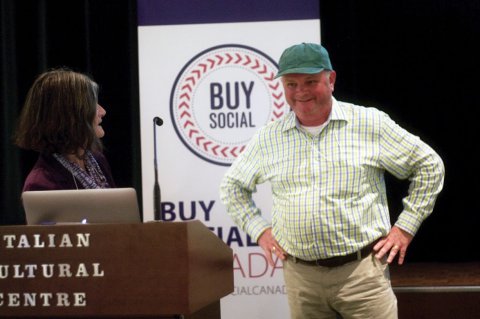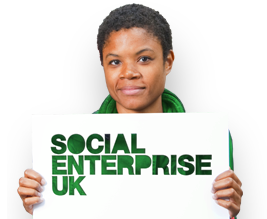 We asked staff and board members what they were planning on reading this summer: vocationally and vacationally. The resulting list is at turns surprising and exciting, practical and insightful. We hope that you might draw some inspiration from the following reading list for your own summer entertainment and professional development.
We asked staff and board members what they were planning on reading this summer: vocationally and vacationally. The resulting list is at turns surprising and exciting, practical and insightful. We hope that you might draw some inspiration from the following reading list for your own summer entertainment and professional development.
Click on the names below or scroll down to read the suggestions.
We’d love to hear what you’re reading! Share your suggestions with us on Facebook or Twitter.
 Art Lew
Art Lew
Investing in Place: Economic Renewal in Northern British Columbia by Sean Markey, Greg Halseth and Don Manson
This book draws on experiences in rural British looking at the historic exploitation of natural resources and how that helped the economic development and the establishment and growth of communities/regions. The book suggests rural regions can no longer use the same thinking that propelled historic success and provides insights into creating place-based economies.
The Idea of Justice by Amartya Sen
Sen brings forward a philosophical framework that will support political and social action for the reduction of injustice in the lives people live. Sen’s philosophical foundation is based on a comparative justice system rather then the current philosophical foundation used to justify government action based on the concept of perfect institutions dispensing perfect justice.
 Brendan Reimer
Brendan Reimer
Fair Trade, Sustainability and Social Change by Ian Hudson, Mark Hudson, Mara Fridell
This book builds on John Loxley’s work, Transforming or Reforming Capitalism: Towards a Theory of Community Economic Development, bringing a critical analysis to international perspectives on CED. I’m really curious to hear the authors’ perspectives on Fair Trade.
The Tipping Point: How Little Things Can Make a Big Difference by Malcolm Gladwell
CED is not only about changing systems, it is also about changing the way people behave. While we as CED practitioners are convinced about our vision, our work, and our message we have a difficult time getting this to ‘stick’ with the rest of society. This book explores some ideas around what takes to get ideas and trends past a tipping point and into the mainstream.
 Carol Madsen
Carol Madsen
An Anthology of Somali Poetry translated by Bogumil W. Andrzejewski with Sheila Andrzejewski
I am currently working closely with the Somalian women’s community in Surrey BC and am trying to get a hold of anything that I can get my hands on about the country and the culture. It is high time those less familiar with Somali society discover the astonishing world of Somali poetry: how it is conceived, how it is recited and what impact it has had. There are true champions of universal literature here, and this book features and explains quite a few of them.
 Caroline Lachance
Caroline Lachance
Économix – La première histoire de l’économie en BD [in English: Economix, How our Economy Works (and Doesn’t work) in Words and Picture] par Michael Goodwin
Un premier livre que j’utiliserai fort probablement pour le travail, mais qui est très intéressant et pas trop compliqué à lire, car il est sous forme de bande dessinée!
Je profite de mes vacances d’été pour lire toutes les revues – en retard — d’Alternatives Économiques. Je peux les apporter au chalet ou simplement sur ma terrasse! Le numéro de Juillet-Août est titré « Une politique de gauche ? Oui c’est possible ! » et il y a un dossier spécial « 1914, La France avant la tourmente : un portrait économique et social ».
 Christine Landry
Christine Landry
…and the Mountains Echoed by Khaled Hosseini
Perhaps best known for his award-winning novel The Kite Runner, Hosseini is a splendid storyteller whose words transports the reader and engages the senses. More importantly, in my opinion, he tackles conflict – the pain and suffering of his characters and forebears – with deft strokes of humanity. Given the seemingly never-ending resurgence of oppression and terror in his birth country, I hope the pulse of his work keeps beating.
 Drew Whatman
Drew Whatman
Gender Failure by Ivan E. Coyote and Rae Spoon
I have a fondness for personal essay collections. This collection focuses on two individuals’ journeys through, and sometimes out of, gender. The stories are from two individuals who fall outside of the gender binary, shedding a light on gender that most people do not see, or think about.
Nevada by Imogen Binnie
I’ve heard amazing things about this book from the Marginalized Gender Sexuality and Romantic Identities community. A dark comedic look at a trans woman’s life that doesn’t focus on early transition, and instead on her as a person, through all the ups and downs of life, gender related and not.
 Geoff Ripat
Geoff Ripat
Chasing Chaos: My Decade In and Out of Humanitarian Aid by Jessica Alexander
I love learning about how and why development projects fail – and even better yet, how they sometimes succeed, against all odds. This book is a memoir from an international development practitioner who worked in Rwanda, Haiti, and Sierra Leone.
The Orenda by Joseph Boyden
Historical novel set in Huron village at the time of first European missionaries arriving in their land. I’m reading it because culture clash and colonization still forms and shapes present realities here in Winnipeg (as well as everywhere else). Plus the book won the CBC’s Canada Reads literary battle this year.
 Indu Krishnamurthy
Indu Krishnamurthy
Rebalancing Society: Radical Renewal Beyond Left, Right, and Center by Henry Mintzberg
Management guru, Mintzberg, highlights the importance of rebalancing private and public sector with a stronger third sector – ‘the plural sector of social forces manifested in robust communities’. I am hoping to gain some inspiration to continue to work in this sector, despite the increasing strains due to government underfunding.
Nonprofit Governance – Innovative Perspectives and Approaches edited by Chris Cornforth and Willliam A. Brown
This collection offers a comprehensive assessment of research on the governance of nonprofit organizations. I am hoping to gain a different perspective on the subject based on the author’s research.
Katie Schewe
I often keep up with a number of communications blogs and email newsletters, including:
 New Media Manitoba
New Media Manitoba
New Media Manitoba’s email newsletter outlines advances in tech and communications in Manitoba. Not non-profit or CED focused, but a great way to keep an eye on the local scene, including potential Spark networking opportunities!
A Billion + Change: Unleashing the power of skills-based and pro bono service
A Billion + Change is a US non-profit organization that works to mobilize companies for pro bono work. They don’t have an overt CED lens, but they promote “strategic alignment of philanthropy and business goals… We believe that companies can improve their bottom line while effecting positive changes in their communities.”
 Marianne Jurzyniec
Marianne Jurzyniec
Sharing is Good: How to Save Money, Time and Resources through Collaborative Consumption by Beth Buczynski
If asked what keeps me up at night, it’s how much and how fast our society consumes. Bucynski outlines the history of collaborative consumption, the benefits and challenges of a sharing lifestyle, and, best of all, offers actual resources to start making change.
Flash Boys: A Wall Street Revolt by Michael Lewis
Flash Boys dives into the U.S. stock market, post-financial crisis, with a group of characters that believe the big Wall Street banks are controlling it. Together they set out to expose this and to reform the financial markets.
 Matthew Thompson
Matthew Thompson
Payback: Debt and the Shadow Side of Wealth by Margaret Atwood
This is from Atwood’s 2008 Massey lecture and I thought it would be great to read as a follow up to David Graeber’s great book Debt: The First 5,000 Years. Debt pre-exists money and barter, framing much of our moral understanding of exchange. Debt can be on one hand a tool for positive community development and on the other hand a tool for social control by those who have wealth.
Citizen Wealth: Winning the Campaign to Save Working Families by Wade Rathke
Written by the founder of ACORN, the hugely effective grassroots organizing community organization, this book explores successful approaches to mobilizing low-income communities around living-wage initiatives, battling predatory lending practices, developing new worker organizations, and building a politically active base to protest policy barriers to overcoming poverty.
 Michael Toye
Michael Toye
Deepening Community by Paul Born
Born is a co-founder of CCEDNet and has been called ‘Canada’s leading community organizer’. He has a lot to say on strategies to strengthen community and his latest book offers engaging insight into his many years of thinking and doing.
Great by Choice by Jim Collins and Morten Hansen
This book and Collins’ preceding book Good to Great were recommended by two of the most experienced and successful managers of CED organizations in Canada: Walter Hossli of Momentum, and Rankin MacSween of New Dawn Enterprises. They present results of extensive studies of private sector companies, but many of the principles and lessons drawn from that research are applicable more broadly.
 Norman Greenberg
Norman Greenberg
Don’t Sweat the Small Stuff by Richard Carlson
This book contains many common sense but rare jewels of wisdom to support people in their busy lives.
The Road by Cormac McCarthy
A fascinating book about the love between a father and son after a worldwide disaster.
 Paul Chamberlain
Paul Chamberlain
Community Conversations by Paul Born
Born recognizes that the complex problems we are facing require multi-faceted and holistic responses developed by working collaboratively and inclusively to build communities through engaging diverse groups. He calls this process “having community conversations” and this book promises to provide theory, case studies and concrete tools, all presented through storytelling and an easy to read conversational style. Perfect for a work related summer read.
Donna Leon’s books featuring police commissioner Guido Brunetti
This is crime fiction that gives a compelling sense of Venice. The crime committed in each novel usually features a particular social issue and, as one might expect in novels set in Italy, they also provide mouth-watering descriptions of the food being eaten. These are not high-octane gruesome thrillers but engaging stories that will ensure that at least part of your summer vacation is spent in Venice.
 Ryan Gibson
Ryan Gibson
Housing First in Rural Canada: Rural Homelessness & Housing First Feasibility Across 22 Canadian Communities by Jeannette Waegemakers Schiff and Alina Turner
This study examines the dynamics of rural homelessness in 22 communities across Canada. The research aims to develop an understanding of the scope of rural homelessness from a comparative lens and identify whether and how Housing First as an approach can be implemented in a rural context.
Rural Wealth Creation edited by John Pender, Bruce Weber, Thomas Johnson, and J. Matthew Fannin
What role does wealth (physical, financial, human, natural, social, et. al.) play in achieving sustainable rural economic development? The authors of this book propose a conceptual framework for rural wealth creation that considers how multiple forms of wealth provide opportunities for rural development, and how development strategies affect the dynamics of wealth.
 Ryan O’Connor
Ryan O’Connor
What’s the Economy For, Anyway? by John de Graaf and David Batker
If you work in the CED field, you probably ask yourself this question daily. This funny, thought-provoking book provides practical solutions to building an economy that pays fair wages and maximizes our access to important things like health, happiness, and time.
Happy City by Charles Montgomery
The world is rapidly urbanizing, but – like the economy – continual growth doesn’t mean we’re all better off. Using clever case studies from around the world, Happy City examines how our greatest challenges – income inequality, climate change, and public health – can all be met through people-focused urban design.
 Sarah Leeson-Klym
Sarah Leeson-Klym
Pedagogy of the Oppressed by Paulo Freire
In this classic book Freire argues that the teacher-student relationship needs to level out and be reciprocal, iterative, and change-making. Education could be a “practice of freedom” where people’s minds open to critical thought and a vision of a better world around them. It’s been on my reading list for years and in fact I’m embarrassed to just get to it now.
The Orenda by Joseph Boyden
This novel winds around the history of contact between settlers and indigenous peoples in Canada, a history that is crucial for understanding our current reality. Boyden (author of Three Day Road) is a man who’s had to wrestle with his Anishinaabe identity and come to terms with this painful past. I can already tell it will be a difficult but important read.
 Wendy Keats
Wendy Keats
What Then Must We Do? By Gar Alperovitz
In his new book, Alperovitz imagines how a new economic system might actually emerge, from the bottom up, in the next few decades. To get there, he describes a strategy for slowly turning privately owned blocks of wealth into democratically owned blocks of wealth—in contexts that range from the health care and banking sectors to transportation infrastructure.
When the Boomers Bail: A Community Economic Survival Guide by Mark Lautman
Focuses on the looming issue of a “zero-sum labor market” for qualified workers and how it will impact. We are about to have the largest exodus out of the workforce in history as our aging workforce can no longer meet the labor needs of an expanding economy, resulting in a “zero-sum labor market” in which the power shifts from the company and community to the worker.












 New Media Manitoba
New Media Manitoba








 On July 18th, the CCEDNet – Manitoba staff team spent the warm and windy day alongside hundreds of volunteers swinging hammers as part of a
On July 18th, the CCEDNet – Manitoba staff team spent the warm and windy day alongside hundreds of volunteers swinging hammers as part of a 
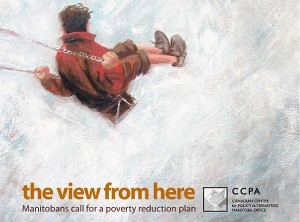
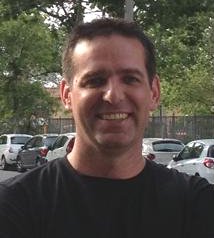
 Have you been mulling over a great project idea to help transform your neighbourhood? Are you ready to take it to the next step? Now is your chance to win a matching grant of up to $2,000 to turn your idea into a reality!
Have you been mulling over a great project idea to help transform your neighbourhood? Are you ready to take it to the next step? Now is your chance to win a matching grant of up to $2,000 to turn your idea into a reality! I can confidently say that the conference I attended back in May has had the biggest impact on me so far out of the twenty plus conferences I’ll estimate I’ve attended (who keeps track of those numbers anyway?). Therefore I would say
I can confidently say that the conference I attended back in May has had the biggest impact on me so far out of the twenty plus conferences I’ll estimate I’ve attended (who keeps track of those numbers anyway?). Therefore I would say 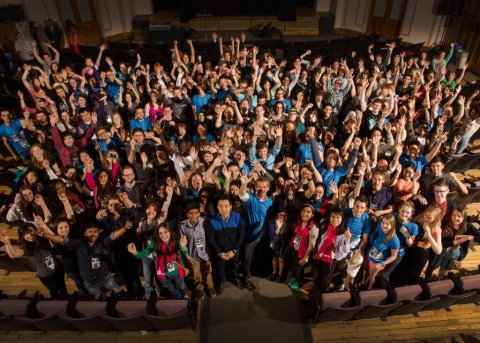
 Marianne Jurzyniec is a Governance Liaison Manager with
Marianne Jurzyniec is a Governance Liaison Manager with  Pioneer+TO
Pioneer+TO Affinity Credit Union
Affinity Credit Union
 A few weeks ago, over 100 people gathered at the
A few weeks ago, over 100 people gathered at the 